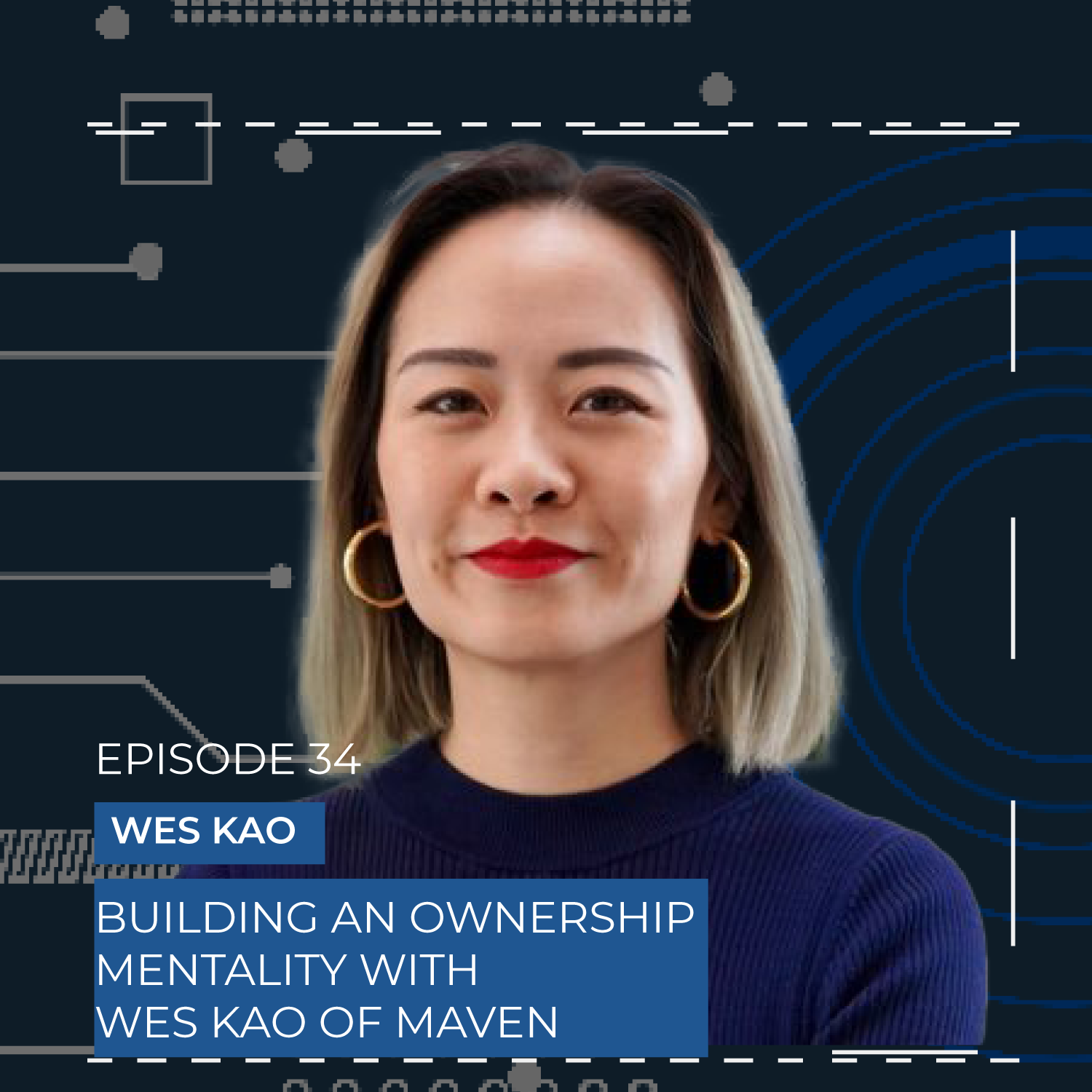
There’s a fine line between taking ownership and overstepping boundaries. So, how do you know where that line is? This week’s guest, Wes Kao, sheds some light on this topic.
Wes is a well-known entrepreneur, speaker, coach, and advisor. She’s the Co-founder of Maven, an ad tech company that raised $25 million from First Round and Andreessen Horowitz. Previously, she co-founded the altMBA with bestselling author Seth Godin. She also writes a fascinating weekly newsletter for over 40,000 high performers in which she shares honest, tactical insights from her experiences in business and leadership.
In this episode of the Scaling Tech podcast, we discuss an important mindset in tech and beyond—acting like an owner. Wes shares many valuable strategies for taking initiative, thinking strategically in communication and problem-solving, and prioritizing the best interests of the business.
To learn how to cultivate an ownership mentality in your workplace, don’t miss this episode packed with lots of practical advice from both Wes and Arin. And keep following our podcast for even more inspiration that will help you build a thriving software engineering team.
ABOUT GUEST
Name: Wes Kao
What she does: She’s the Co-Founder of Maven, a platform for live, cohort-based courses.
Company: Maven
Noteworthy: Wes co-founded the altMBA with bestselling author Seth Godin.
Where to find Wes: LinkedIn | X | Newsletter
KEY INSIGHTS
⚡Take ownership and manage up. Taking ownership is about being proactive in your work and openly communicating with your managers. It’s not about solving problems on your own without informing anyone, nor is it about burdening your managers with every detail. Wes suggests a balanced approach between those two. She explains,
“You don’t want to accidentally put all the work on your manager’s shoulders to figure things out. But that’s exactly what we do when we go to our manager, and we dump all our problems and our frustrations onto them and force them to do the heavy lifting by thinking about what to do, by thinking about solutions, by thinking about the upside and downside of various paths and the trade-offs of various paths and the feasibility of various paths. That is the hard part. So you should embrace doing some of that hard part and then bring the idea to your manager so that you can both calibrate and figure out what is the best path going forward.”
⚡Prioritize strategy over self-expression. In conversations and conflicts, it’s vital to avoid being too me-focused and instead focus on the bigger picture. This will allow for a constructive conversation and ensure the best outcome for everyone involved.
Wes explains, “I have a framework that I call strategy versus self-expression. Self-expression is trying to teach people a lesson, trying to have the last word, trying to get them to acknowledge how you feel and how this has been very difficult for you. So, self-expression is usually 90% of what you initially want to say. Strategy is the 10% of all of that that will lead the person to change their behavior in the way that you want them to change their behavior. So you really want to take a step back and think, how can I be strategic here given that this topic is already something that we’re both coming in with a little bit of frenetic energy and think about strategy versus self-expression.”
⚡Do what’s best for the business. Decision-making is a tricky field. Who gets the final say? As Wes points out, it’s not about whose idea wins but about doing what’s best for the business.
She says, “I think it’s less about who has the final say, in my opinion, and more about doing what’s best for the business and always advocating for what’s best for the business. […] Sometimes that might be your idea. Sometimes it’s my idea. And it doesn’t really matter whose idea it is as long as we are surfacing what is most likely to be most right. And I think that takes everyone chiming in. I do think that there’s almost a moral responsibility that each of us have, regardless of what team are on, what function we’re in, where if you’re noticing something, if you’re noticing a pattern, if you’re noticing a hunch, you want to share that out with everyone else.”

